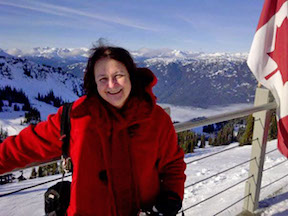- In what ways do Wollstonecraft’s Letters differ from an autobiography? Do you feel these differences limit or enhance its interest?
- What may be some advantages and disadvantages of the epistolary form? Do you think Wollstonecraft fully exploits the former?
- Does the narrative hold your interest throughout? Is there a sense of progression and climax?
- What are some noticeable features of Wollstonecraft’s style?
- Does it contain elements of humor?
- What seem to be the most striking features of Wollstonecraft’s character as exhibited in the Letters, and how are these demonstrated?
- What seems to be Wollstonecraft’s opinion of herself? Is she ashamed of anything? In what things does she take the most pride?
- To what extent does the tone of this book resemble that of the selections from A Vindication? Do you feel she has shifted any of her opinions and attitudes since the earlier work, and if so, how do you account for the change?
- What attitudes doe s she express towards the women she meets? Are thre evidences of her feminist opinions throughout?
- What seem to be Wollstonecraft’s political opinions, and where do you think these would have fitted in the spectrum of contemporary political views?
- What attitudes does she demonstrate towards servants and peasants? To what extent to her views on Scandinavia reveal British preferences and biases?
- What are some Romantic features of her response to nature and landscape? What effect do her landscape descriptions have on the book’s pace and tone?
- In your view, does Wollstonecraft manifest any non-Romantic traits?
- What seem to be her beliefs concerning religion and a future life? How conventional would these thave been during this period? Why do you think she feels such virulent contempt for Methodism?
- Do the Letters give any indication of Wollstonecraft’s relationships with friends and family?
- What does Wollstonecraft consider to be the best and worst aspects of Scandinavian life? Do these views seem reasonable?
